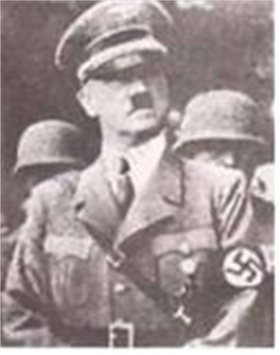 Short Answer Type
Short Answer Type Long Answer Type
Long Answer TypeThe early Congressmen were liberal in their views and programmes. This led to the rise of
radical nationalists who demanded more forceful action against the British. In this context,
discuss the following:
(a) Reasons why the early Congressmen were called ‘Moderates’.
(b) How did the Moderates differ from the Assertive Nationalists in realising their objectives?
(c) How did Tilak bring a new wave in Indian politics that was distinct from the early Congressmen?
The reasons for the formation of the Muslim League were many. In this context, explain:
(a) Any three factors that led to the formation of the League in India.
(b) Any three demands made by the Muslim Deputation in 1906 to the Viceroy Lord Minto.
(c) The aims and objectives of the Muslim League.
The Congress Working Committee passed the famous ‘Quit India Resolution’ at Wardha in July 1942. With reference to this, answer the following questions:
(a) What were the reasons behind the passing of this resolution?
(b) What was the British government’s reaction to the Quit India Movement?
(c) What was the impact and significance of this movement?
(a) The following are the reasons for the passing of the ‘Quit India’ resolution.
i. Failure of the Cripps Mission – The failure of the Cripps Mission had generated a lot of anger among the Indian masses and the Congress leaders in particular.
ii. Resignation of the Congress Ministries – The Congress ministries had resigned on the war issue. Their objection was that the British government had dragged India into a major war without consulting even the central legislature or the provincial governments.
iii. Failure of the August Offer – The August offer made by the Viceroy Lord Linlithgow failed to impress the leadership of both the Hindus as well as the Muslims.
(b) The British government reacted in a violent and repressive manner to the nonviolent Quit India movement. The State apparatus was used ruthlessly in the name of maintaining law and order in order to suppress popular discontent. Mobs of protesting Indians were often lathi charged, dispersed by the fire of pistols, rifles and occasionally even machine guns. Captured protestors were subjected to flogging, beatings and extreme torture. Women were stripped and assaulted and even children were subjected to atrocities. A huge number of protestors were thrown into jail without trial with long terms of imprisonment.
(c) The Quit India movement was an important landmark in India’s struggle for freedom from British colonisation. It instilled a new confidence among the Indian masses and aroused a spirit of total sacrifice in them. The movement attracted participation from a large number of people including such varied professions as peasants, workers, lawyers, teachers, soldiers, etc. Men and women of all age groups formed the cadre of the movement. The most important effect of the Quit India Movement was that it made the British realise that in the context of the crippling effects of the Second World War on Britain’s resources and the bitter opposition to its rule India, it would be very difficult to continue ruling the Indians.

Study the picture given below and answer the questions that follow:
(a) Identify the leader in the picture.
(b) State any four factors that led to the rise of dictatorships in Germany and Italy.
(c) Why did he invade Poland? State two similarities between Fascism and Nazism.
The United Nations Organisation was established to maintain peace and ‘promote social progress and better standards of life in larger freedom.’ With reference to this, explain the following:
(a) The composition of the Security Council.
(b) The functions of the Security Council with related to maintaining World Peace.
(c) The role of UNESCO in the development of Science and Technology.
